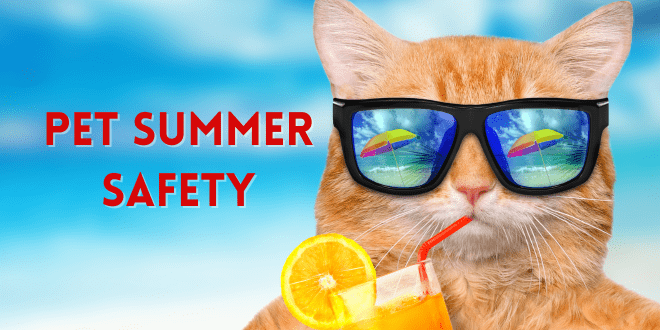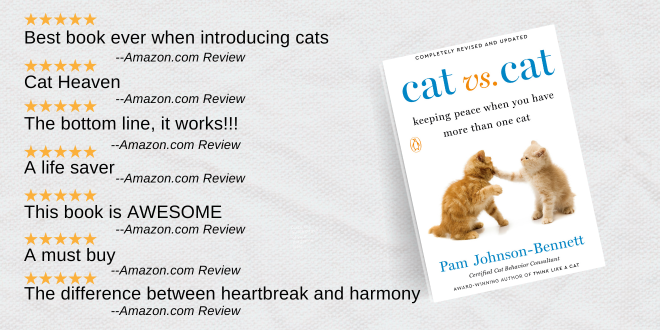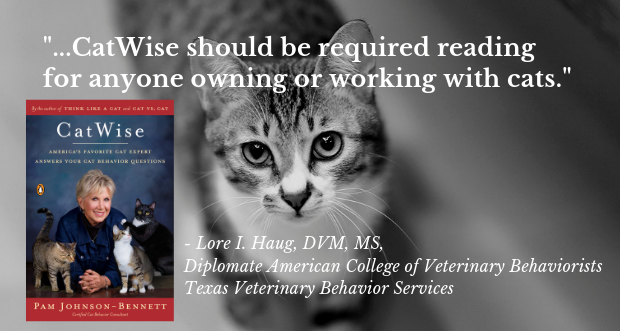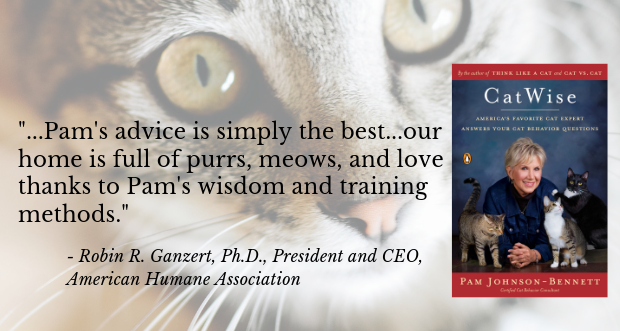
We’re in the heat of summer and even though you may enjoy those hot days lounging by the pool, it doesn’t mean your pet is comfortable being outdoors. There are many heat-related dangers that pet parents may not think about when it comes to what is safe or unsafe for their companion animals. Here are some tips to hopefully avoid any hot weather tragedies:
Don’t Leave Pets in Parked Cars
Everyone should know this by now but sadly, you still hear stories in the news about this tragedy. NEVER leave your pet in a parked car. Even if you crack the window it isn’t sufficient protection from the heat. A car can turn into an oven in mere minutes which can lead to your pet suffering organ damage, heatstroke, or death. Even if parked in the shade, a car’s inside temperature can rapidly soar to a dangerous level.
Climate Control for Your Pet’s Comfort
Even indoor pets can suffer from the heat. Keep your A/C going during the day while you’re gone and don’t rely on fans being able to cool sufficiently when temperatures soar. To keep the rooms cooler, close curtains or tilt blinds to block direct sunlight. If you don’t have air conditioning, set up fans to keep air circulated but make sure the fans are secure and not in a location where the cat can knock them over.
If you don’t have air conditioning and you will be gone all day at work, see if a neighbor or friend can check in on your pet during heat extremes if you aren’t able to return home at lunch for a quick check.
Hold the Exercise
Don’t exercise your pet in hot weather. Try to do your longer walks in the cooler temperatures of the morning or evening.
Outdoor Pets
Make sure animals who are outside have access to shade and water. If you have a dog, don’t depend on the dog house providing shade because there isn’t enough air circulation to cool adequately. Shade should be provided by trees where you also have the benefit of any breezes going by. The kindest thing you can do when it’s extremely hot is to keep pets inside when temperatures rise. If you’re uncomfortable, the chances are excellent your pet is also uncomfortable. Never leave a pet tethered outdoors, even in a shady location because exposure to direct sun can occur before you know it as sunlight shifts. Locate water bowls in shady areas and monitor them so you can keep them filled with fresh water. Place a few ice cubes in the water bowl to help keep the water temp more refreshing.
Keep Your Pet Hydrated
Provide clean, fresh water at all times. Even if you have a cat who typically doesn’t drink much water, it needs to be made available because she’ll probably drink more in warm weather. Provide more than one water station for multiple pets so water doesn’t run out if you’re not around. If you don’t have air conditioning, you can help keep your pet cool by placing a few ice cubes in the water bowl to melt slowly.
Susceptible Breeds
Some animals are more prone to heatstroke. Brachycephalic (short-nosed, flat-faced) breeds such as pugs, Persian cats, and Pekingese are more at risk, as are older pets, those who are overweight and pets with any respiratory or heart conditions.
Hot Feet
Hot asphalt surfaces can burn your pet’s paw pads. They also give off more heat than grass surfaces which will make your pet more uncomfortable. If it’s too hot of a surface for your bare foot or hand then it’s too hot for your pet’s paws. When the air temp is 86°F, the asphalt temp is around 135°F.
Sunburn in Pets
People aren’t the only ones who can get sunburned. It can happen to pets as well, especially on ear tips and the nose. Ask your veterinarian before putting ANY sunscreen on your dog or cat though because most aren’t safe for pets. Sunblocks containing zinc oxide are toxic to dogs and sunscreens containing salicylates (common in almost all sunscreens) have the same toxic effect as aspirin in cats. The safest sun protection you can use is common sense – bring your pets inside and avoid extended exposure to sun.
Window Safety
Cats can easily get out of the window, even if you think you haven’t opened it enough. Don’t count on a flimsy screen to keep your cat safe because a determined cat who sees a bird or another cat outside may be able to easily push through a screen. There are many tragic reports of cats falling out of windows because cat parents didn’t think they’d do anything other than just sit there and enjoy the breeze.
If you open the window, only open it enough to get the breeze, but not enough to risk your cat getting through. There are also pet screens available that are more secure.
Grill and Food Safety
Having a BBQ? Watch that your large dog doesn’t knock over the grill, or try to jump up to steal a hamburger off the hot surface. With all pets, keep an eye on the food you’ve set out to prevent a furry thief from running off with something that could end up causing an upset stomach or become a choking hazard.
Protection from Insects
During the warmer weather, you have the ongoing battle of controlling fleas, ticks, and mosquitoes. Use flea/tick preventative products as prescribed by your veterinarian. Mosquitoes carry the risk of heartworm and both dogs and cats are vulnerable. Talk to your veterinarian about heartworm prevention.
Heatstroke in Pets
Learn the signs of potential heatstroke in pets, such as rapid panting, difficulty breathing, strange gait, rapid heart rate, very red gums. If you see these symptoms or suspect heatstroke, place a damp towel around your pet and get to the emergency veterinary hospital or your veterinarian’s office immediately.
Pool Safety
Never leave your pets unsupervised around the pool. If your dog enjoys swimming in the pool with you, immediately rinse her off with fresh water afterward to remove traces of chlorine. Don’t let your pets drink pool water.
Chemical Safety
Don’t allow your pets on the grass immediately after you’ve treated the grass with any pesticides or rodenticides.
Use Grooming to Cool Your Pet
Brush your pet regularly to remove dead hair and to prevent mats. When mats form they prevent air from reaching the skin’s surface.
To Shave or not to Shave?
The answer is don’t shave your pet. Fur actually insulates from heat and sunburn. Keep your pet groomed but don’t do a shave-down.
Staying Home
Use common sense. Even though your pet may normally enjoy those car rides or trips to the beach or park, it’s not safe during hot summer days. Your pet will be much more comfortable hanging out on the sofa or carpet in the coolness of your house or apartment.
Traveling With Your Pet in Hot Weather
If you plan to travel by plane with your pet, don’t schedule a flight for the middle of day. Make advance reservations for your pet to fly in the cabin with you and not to fly as cargo. In addition to the many horror stories you’ve heard about pets flying as cargo, there’s also the risk of heatstroke from pets sitting in carriers for an extended time on the tarmac. Contact the airline well in advance for requirements regarding in-cabin pet travel.
If you are planning on traveling by car with your pet, carry extra water and a water bowl so you can offer your pet a drink during extended travel. If possible, arrange travel for early morning or evening to avoid the direct sun in the car.
Remember the Community Cats, Strays, and outdoor wildlife
Keep your birdbaths filled and provide water stations for community cats and stray cats as well. They may have a hard time finding water themselves in hot weather. Place water stations in shady locations and monitor them regularly so they don’t become empty. If you feed wet food to community cats, place a flat, reusable ice pack in a dish and then put the dish of food on top of that to keep it fresh.
Need More Information?
For information on cat behavior and training, refer to the best-selling books by Pam Johnson-Bennett. Pam’s books are available at bookstores and online. We’ve included Amazon links here on our website.
If you have a question regarding your cat’s health, please contact your veterinarian. This article is not intended as a replacement for your cat’s veterinary care.






